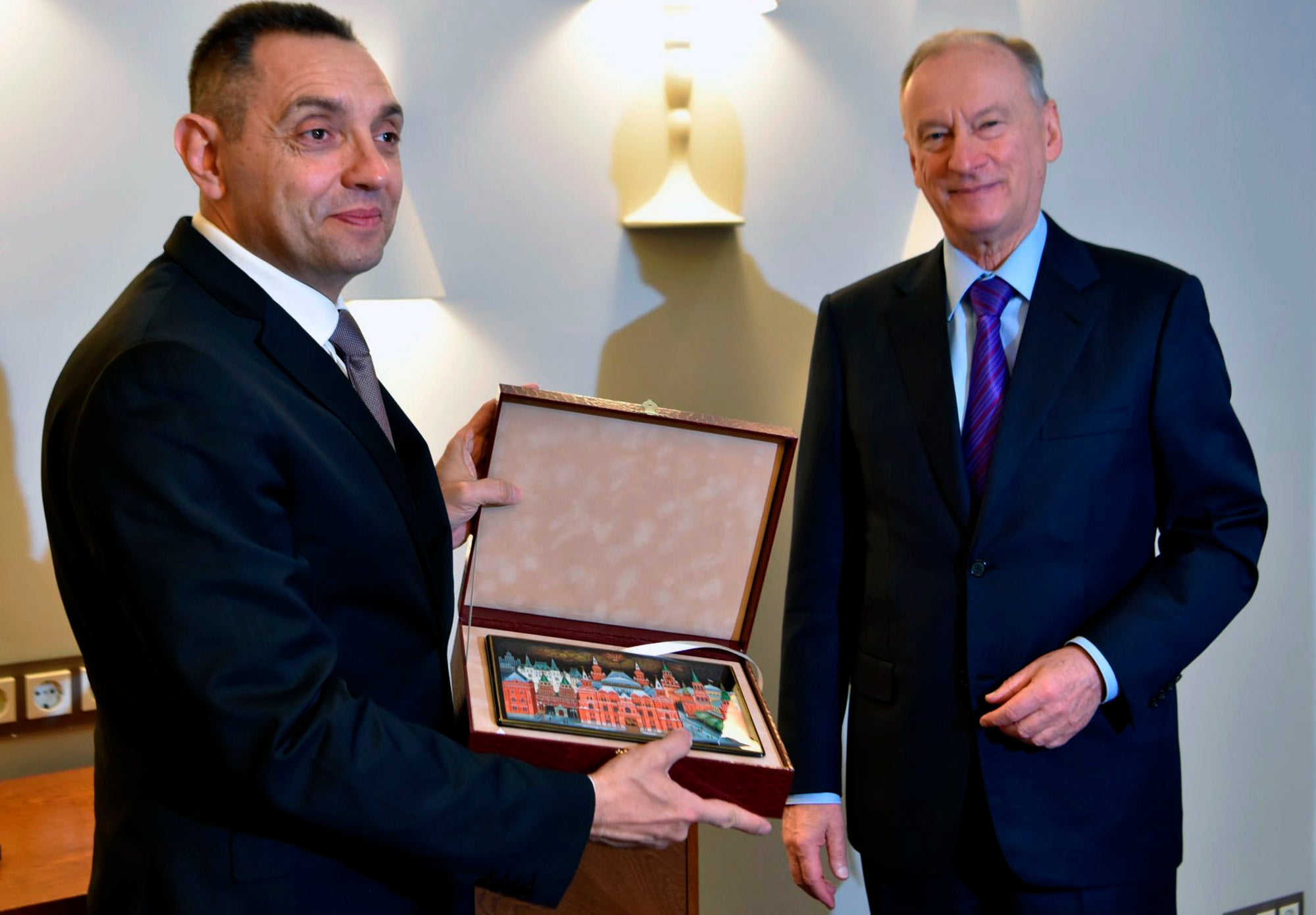Serbia and Russia pledge to combat 'color revolutions'
Serbia's interior minister says Serbia and Russia have pledged to jointly combat popular revolts known as “color revolutions.”

Serbia and Russia pledged Friday to combat popular revolts known as “color revolutions” that the countries' top security officials described as instruments of the West to destabilize “free states,” according to a statement issued by Serbia’s interior minister.
In another sign of growing ties between Serbia and Russia, Serbian Interior Minister Aleksandar Vulin met Nikolai Patrushev the powerful secretary of the Kremlin’s Security Council, in Moscow on Friday.
“It was pointed out at the meeting that the ‘color revolutions’ have become a traditional policy instrument of certain centers of power and countries aimed at undermining statehood and losing sovereignty under the pretext of democratization, and noted that free countries must resist it,” Vulin's statement said.
The term “color revolution” has been used to describe a series of mass protests at the beginning of the 21st century that sometimes led to the toppling of regimes in the former Soviet Union, the former Yugoslavia, the Middle East and Asia.
The meeting between Petrushev, Moscow’s top security official, and Vulin, a staunchly pro-Russia politician, came amid growing public discontent in Serbia with the autocratic rule of President Aleksandar Vucic
Ecological groups unhappy with the way Vucic's populist government is combating widespread pollution in the Balkan state have been at the forefront of recent protests in Serbia.
Vucic and other Serbian officials have denounced such protests and alleged they were financed by the West to destabilize the country.
Another protest is scheduled for Saturday against two laws passed by parliament that are seen as laying the groundwork for a lithium mining by international company Rio Tinto in western Serbia.
Independent Belgrade media reported Friday that Russia and Serbia have formed a “working group to combat color revolutions.”
The group has a task to prevent mass demonstrations and survey opposition Serbian activists, nongovernmental organizations and independent journalists, the pro-opposition Direktno portal said. Direktno's report could not be independently verified.
Vulin said in the statement that as long as Vucic is president, the Serbian government “will always be focused on cooperation with the Russian Federation."
Although formally seeking EU membership, Serbia has refused to align its foreign policies with the 27-nation bloc and has instead strengthened its political, economic and military ties with Russia and China.
Bookmark popover
Removed from bookmarks